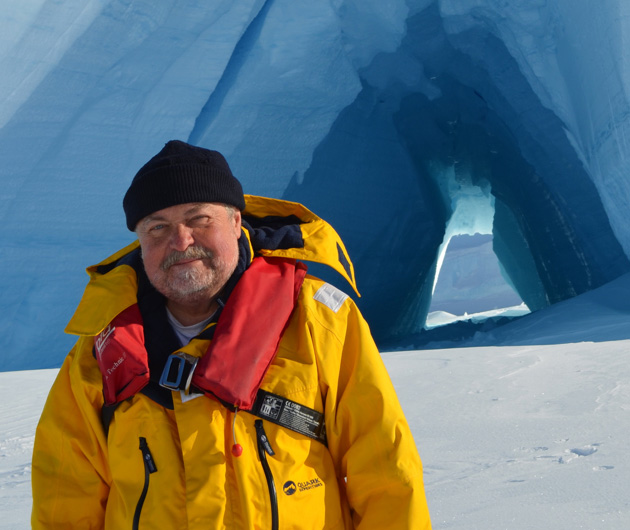TCC past President and Board Member Kevin Hughes experienced the last voyage of an icebreaker during December and January. His detailed accounts were sent by email to a number of friends, including some TCC members. There were 90 passengers (the majority from Australia and China) and a crew of 70. We thought this adventure would be of interest to other TCC members, especially those who have had the icebreaker experience. Below is his summary.

An ‘Old Friend’ Fades Into History
After two decades as a passenger ship, on January 5, 2012, the Russian icebreaker, Kapitan Khlebnikov, arrived in Fremantle, Australia, and disembarked passengers for the last time.
Unlike the other ships that operate in Antarctica, only Khlebnikov was a true icebreaker, which allowed it to get into places no other ship would dare to attempt. It also carried two helicopters which enabled it to fly into places like the “Dry Valleys,” near the McMurdo U.S. base, across vast distances of heavy, multi-year sea ice, and land passengers on the tops of tabular icebergs and the polar ice shelf, itself. It was truly a one-of-a-kind.
Those of you who had the opportunity of traveling on the “KK,” as she was affectionately known, should consider yourselves extremely fortunate, indeed, because this is the end of an era. Because of the escalating price of fuel, an increasingly thriving Russian economy, and Russia’s stated goal of developing offshore oil in the Arctic, it is unlikely a powerful icebreaker such as this will become available again. The nuclear-power icebreakers in the Arctic cannot be used because the Antarctic Treaty bans nuclear material in Antarctica and Antarctic waters.
Even if the Russian government didn’t need the ship to keep the sea lanes open off Siberia, the sheer cost of operating the ship was beginning to price it out of the tourist market, with prices soaring in recent years.
The last cruise landed passengers at Sir Douglas Mawson’s hut, Australia’s first outpost in Antarctica, at Commonwealth Bay (although the operation was cut short when bad weather moved in), Heard Island, a volcanic Australian territory South-southwest of Perth, and several emperor rookeries, including a surreal landing amongst the frozen icebergs at Cape Darnley. It was bittersweet, however, because the French refused to issue a landing permit for the islands of Kerguelen and St. Paul, something Quark Expeditions never told us until the ship was underway, and the landing at Mirny Russian base was also scrubbed due to high winds.
During its time in service, the Khlebnikov circumnavigated the “White Continent” twice, once in each direction, achieved a “furthest South” record for the vessel, which attained southernmost latitude of any ship, and landed passengers at several places on the ice polar ice cap where no human had ever set foot.
Farewell to a unique and iconic ship, which had such a distinguished and historic career!



